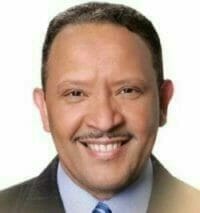“How bad are school vouchers for students? Far worse than most people imagine. Indeed, the use of school vouchers—which provide families with public dollars to spend on private schools—is equivalent to missing out on more than one-third of a year of classroom learning.” – Center for American Progress study, “The Highly Negative Impacts of Vouchers”
School privatization has been a dismal failure, leaving students stranded in low-performing schools while transferring millions of taxpayer dollars into private, for-profit institutions.
The latest proof that private school vouchers don’t work for students emerged from an investigation in Louisiana conducted by several news outlets. “The Cost of Choice” revealed that the state’s $40 million-a-year voucher program has pulled thousands of students out of public schools into failing private schools that receive almost no oversight.
A full two-thirds of all students in the voucher system attended schools rated “D” or “F” under the state’s assessment system.
There are 86 private schools that have accepted voucher students but most don’t have enough students enrolled to be assigned a grade. But of the 37 that do, not a single school scored “A” or “B” and only three received a “C.” The investigation found that students have left “C-rated” public schools to attend “D-” and “F-rated” private schools.
The Louisiana investigation is hardly the first to demonstrate the failure of voucher programs. When the Trump Administration unveiled a budget that sought to divert public funds from bipartisan education programs into privatization efforts, Senator Patty Murray, Ranking Member of the Health, Education, Labor & Pensions Committee, compiled a devastating memo detailing the damaging impact of school privatization programs across the country.
Private schools that siphon taxpayer dollars from public schools are able to skirt the accountability and reporting requirements to which public schools are subject. In many cases, there’s simply no way for parents to compare student performance in private schools with public school, or to make sure that the private school meets even the most basic standards required of public schools.
Furthermore, the cost of attending private schools, including those that accept vouchers, usually exceeds the amount of the voucher, putting the voucher program out of reach for low-income families. In many cases, voucher programs merely publicly subsidize tuition for students who already were attending the private schools – often violating the principle of separation of church and state, since many of the schools are religiously affiliated.
Of particular concern to the Urban League Movement is the way in which voucher programs undermine civil rights protection. In response to the nation’s long history of discrimination in schools, Congress passed civil rights laws to give every child in the United States access to a quality education. Most voucher programs fail ensure that private schools receiving taxpayer dollars be held to these civil rights standards.
“Under privatization programs, schools receive an ever-growing share of taxpayer funding but are free to choose the students they want, the rules they follow, and the practices they believe in, ignoring accountability and transparency for public dollars.,” Murray and her staff wrote in the 2017 memo. “In addition, voucher programs across the country have shown evidence of fraud, such as embezzlement of funds and submitting applications and receiving funding for nonexistent students. This occurs while simultaneously depleting needed resources for public schools and shortchanging students.”
It’s clear that we, as a nation – and as communities invested in providing all children with a quality education that prepares them for college, work and life – must turn away from the failed voucher experiment and toward strengthening and improving our public schools. As the National Urban League made clear in its recent analysis of state plans to comply with the Every Student Succeeds Act, we believe students, parents and community stakeholders should adopt a vision of education reform and innovation that expands and deepens opportunity, upends inequity, accelerates progress and delivers more fully on the promise of education.
Learn more about how the National Urban League’s Equity and Excellence Project is supporting local, state and national advocacy, engagement and education reform efforts, and join the conversation by following @NatUrbanLeague on social media.
Marc H. Morial is President and CEO of the National Urban League. He was a Louisiana State Senator from 1992-1994, and served as mayor of New Orleans from 1994 to 2002. Morial is an Executive Committee member of the Leadership Conference on Civil Rights, the Black Leadership Forum and Leadership, and is a Board Member of both the Muhammad Ali Center and the New Jersey Performing Arts Center.


